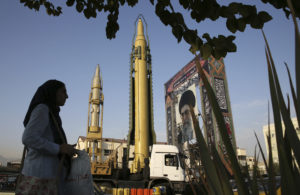A Russian TV channel is airing footage of an explosion that killed the leader of the Donetsk rebel controlled area, Alexander Zacharchenko. The blast last month occurred in a café in rebel controlled Donetsk. The video was aired by Russian 1 television station.
Analysis : The landmine that killed the three teenagers is a reminder of the deadly effects of war even after peace deals have been signed. Landmines have been banned mainly for this reason. They are oftentimes forgotten, left to kill or injure innocent people long after peace treaties have been signed by both sides.
Afghanistan
For the United States, major operations started after the September 11, 2001, attacks from the Al Qaeda terrorist organization. Following the September 11 attacks, which were planned and coordinated by Al Qaeda in Afghanistan, the United States attacked on October 7. The conflict is now the longest in US history, and with thousands of troops still deployed it will take more time to ensure that Afghanistan will not degrade back to a pre-9/11 condition which was a hotbed of terrorist and extremist ideology.
Developments: The F-35 Lighting II stealth fighter made its ‘combat debut’ on the 27th of September against targets in Afghanistan. The F-35 flew from the USS Essex.
What to watch: Elections in Afghanistan are coming up. The elections have been delayed several times, and the vote will take place on October 20. The election commission has wanted over 20,000 biometric identification systems to ensure the integrity of the voting, but has only so far received about 4400 systems. The election commission has reported that five candidates have been reported dead or missing.
Analysis: The F-35 is said to have flown over 1000 miles to drop bombs which could have theoretically been dropped by other means, so this combat debut of the F-35 may be for reasons other than just dropping bombs. On Saturday an F-35B jet crashed in South Carolina, making it the first crash for the new F-35 fighter jet. The crash is under investigation, however, the pilot did eject and manage to land safely.

Being a candidate in Afghanistan is dangerous. With five candidates out of the picture due to death or kidnapping, it remains a dangerous occupation. The Taliban will not accept any results of the elections, so the October 20 vote will be significant for those people in Afghanistan who want a democratically elected government. Campaigning has stared for the more than 2000 candidates running for office with only 249 seats available, with 418 women running for office as well.
Mexican Drug Wars
The Mexican drug wars have been bloody for decades, but the modern drug war as referred to in the media was generally thought to have started in 2006 when Mexican President Felipe Calderon sent over 6,000 Mexican troops to his native state of Michoacan. As a result the drug wars have increased greatly and tens of thousands of murders have occurred since then, which was a dramatic increase from before 2006. Mexico’s drug wars have claimed sometimes tens of thousands of lives a year, with many reports of escalating brutality, such as beheadings and torture.
Developments: Ten people are dead after a 2 hour confrontation in Guanajuato. According to police, it started when they were fired upon in the community of Purisima del Zapote, which then turned into a pursuit where police later had to retreat into a ravine after being shot and fired upon by at least 40 people wearing the initials CJNG which stands for Jalisco New Generation Cartel. The reports do not specify how the police were able to make it out of the shootout with minimal injuries compared to the cartel members who suffered 10 deaths compared to one police and one paramedic injured.
Analysis: Guanajuato is among the worst states for police officers in Mexico. Reportedly, 56 police officers have been murdered in this state of Mexico, and only 12 arrests have been made, with no convictions for 56 murdered police officers. This state has literally, if these statistics are correct, a zero conviction rate for murdering police officers this year. There is undoubtedly more to the friction between police and cartel members, but it would not be out of the question to have police go vigilante in situations like these, as does happen when the situations become so dire as a zero percent conviction rate for police murders. In other countries such as El Salvador police have been known to go around in death squads taking justice into their own hands. There is not enough information to determine what the local politics, people, and culture are to ascertain the details of this situation, but undoubtedly there is much more to the story than what can be determined from the few reports that exist about it.











COMMENTS